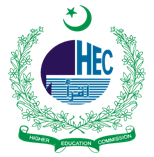Exploring the E-Reading Landscape among University Students in Lahore: A Quantitative Investigation
Keywords:
Information Communication Technologies; Electronic Resources; Reading Behavior; Electronic Reading Behavior; Book Reading FormatAbstract
The digital revolution has transformed the world into a global village, affecting all aspects of life, including reading habits. Traditionally, readers exhibited a preference for and demonstrated greater comfort with printed materials. However, with the advent of Information and Communication Technology (ICT), reading preferences have undergone a significant shift in the digital era. ICT has played a crucial role in this transition, necessitating libraries and information centers to adapt their services to meet the evolving information needs of users. Consequently, these institutions now provide advanced electronic book readers and digital resources. This article examines the evolving reading preferences of university students. A quantitative research design, utilizing an adopted questionnaire, was employed for the study. The sample comprised undergraduate students from private universities in Lahore, with data collected through convenience sampling. A total of 306 participants were included in the study. The collected data were analyzed using SPSS. The results revealed that the majority of students preferred electronic formats for academic purposes. Additionally, the study found that students utilized both print and electronic formats for everyday knowledge acquisition and leisure reading. The findings suggest a shift in students' preferred reading format from print to electronic. The study also identified several challenges associated with electronic reading, including eye fatigue, disruptive hyperlinks, and concerns regarding costs. Moreover, the research highlighted key motivational factors for electronic reading, such as the ability to easily extract, duplicate, and insert the most recent information.
Downloads
Published
Issue
Section
License
Copyright (c) 2024 Muhammad Waqar Aslam, Muhammad Nadeem Akhtar, Ferhana Saeed Hashmi, Sidra Batool, Khurram Shahzad, Kirn Ashraf

This work is licensed under a Creative Commons Attribution-NonCommercial 4.0 International License.








